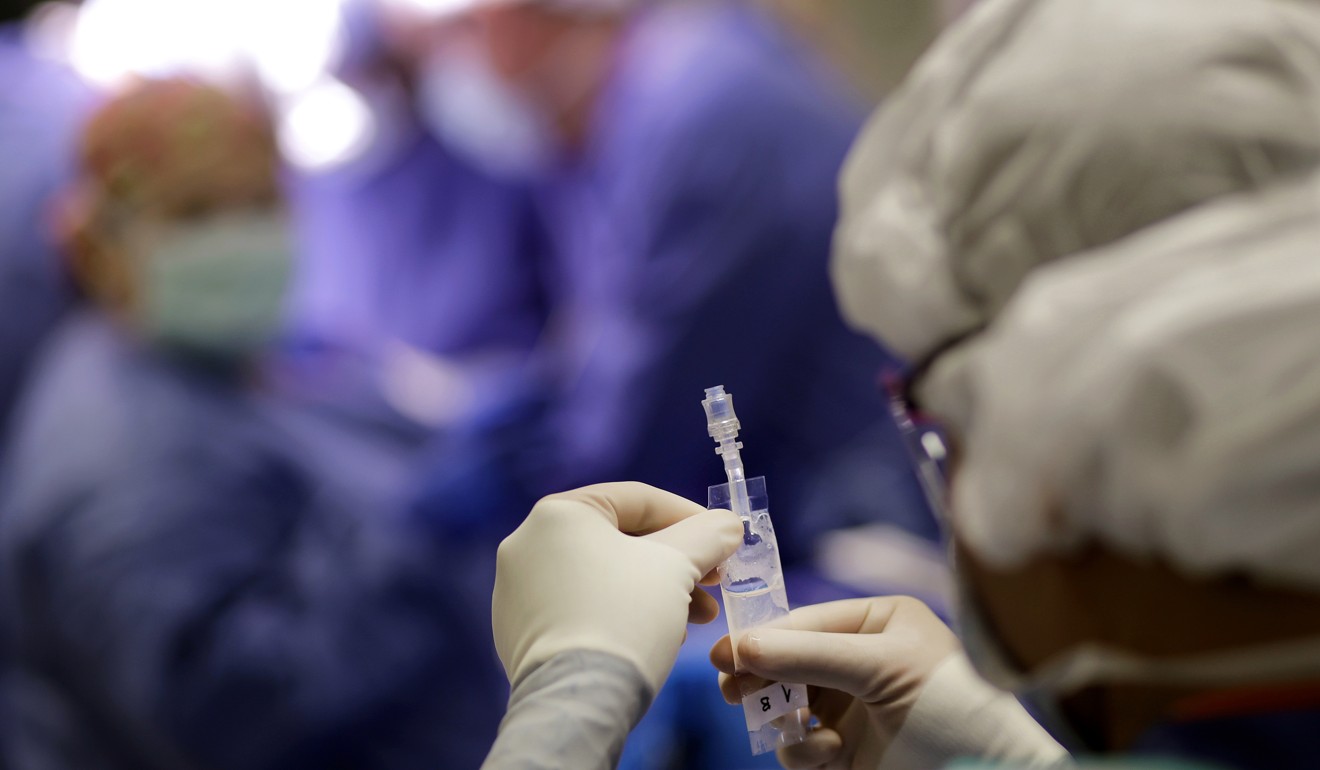Latest News
Hong Kong biotech start-up claims world first in stem cell treatment of Alzheimer’s and Parkinson’s diseases
13 June 2017


Hong Kong Baptist University’s Professor Ken Yung suggests the treatment could benefit almost 100 million patients around the world, who suffer from neurodegenerative diseases, including strokes. Photo: AP
He suggests the treatment could benefit almost 100 million patients around the world, who suffer from neurodegenerative diseases, including strokes.
China alone has the largest population of people with dementia, with an estimated 23.3 million now projected to suffer from the condition by 2030, according to the World Health Organisation.
Yung co-founded Oper Technology and serves as its chairman.
The company is being developed under Hong Kong Science and Technology Parks’ Incu-Bio programme, which provides select biotechnology start-ups with laboratory and support services, and ultimately it aims to commercialise its medical technology.
“If you put the [developed] cells in a different environment from where the [stem cells are harvested], there might be [misdirected] growth in an uncontrolled environment,” said Yung.
“We want to use neural cells to repair neural cells, and since the stem cells and re-injected neural cells are from the same micro-environment, there will not be uncontrollable growth.”
The method has proven to be “very successful” when tested on rats, especially in cases of Parkinson’s, according to Yung, who suggested the method could eventually become an “ultimate treatment” for the disease.
Furthermore, the risks of this treatment are similar to what is currently on the market today, he added.
The treatment could also help to treat early-stage Alzheimer’s patients, slowing down or even halting the degeneration process, although Yung acknowledged that its effectiveness in treating terminal stage patients may be limited since it would be difficult to regenerate enough neural cells when patients’ brains have shrunk due to the condition.
While animals subjected to the treatment displayed an improvement in neural function following the re-injection, the team has yet to start on clinical trials as such cell therapy is still nascent and largely unregulated in Hong Kong.
Oper Technology is currently seeking investment and often sets up booths at conferences such as last week’s EmTech Hong Kong conference, which focuses on innovation and emerging technologies.
Yung hopes to raise enough funds to begin clinical trials in Australia in the near future, where autologous cell therapies are legal and thus provides an ideal environment for clinical trials.